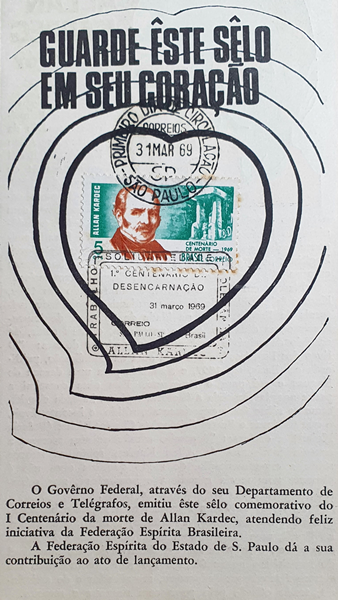Dying, Death & After Death: Random Musing Concerning the Spiritually Challenged

- those who shut their eyes to spiritual vision
Helen Keller (Keller 1994, 154)
"When you're dead, you're dead," my doctor proclaimed quite authoritatively, as if his medical training had qualified him in subjects beyond the earthly shell. His comment was prompted by having noticed a book about near-death experiences I had brought to read in his waiting room.
"The most important thing to know about death is that you'd better make the most of what time you have," the doctor added in such a way as to clearly drive across the point that he does not believe in the survival of consciousness.
While I fully agreed with his comment about making the most of this lifetime, I doubted that we were anywhere near agreement on our underlying reasons. As I have come to understand it, life is a learning experience aimed at an ultimate graduation to something much greater - a Godhead that no human can really comprehend - and death, except for those ready to graduate, is merely a transition to another phase of that learning experience. Can anyone who does not believe in survival of consciousness view life as a learning experience? Where would the lessons be applied? What is the point of it all?
The doctor expressed concern that my interest in such a morbid subject might indicate depression, perhaps even thoughts of suicide. I informed him that such was definitely not the case. I wanted to explain to him that I consider death a very positive and uplifting subject, that the study of it helps me embrace this life in a much more courageous and fulfilling way, that it helps me be a better person, that it just simply makes me feel good. I wanted to recite the words of transpersonal counselor and author Lily Fairchilde:
"We cannot begin to live fully until we come to terms with the reality of death. We cannot know true courage until we look death in the face and see that it is not a voracious monster with yawning jaws that will eventually gobble up everything we hold precious, but instead a thing of beauty and wonder and great adventure. We will never be free to love fully and without fear until we know deep in our hearts the truth that love never dies, but lives on, along with those we have loved, forever." (Fairchilde, 1997, intro xviii)
I wanted to engage the good doctor in a discussion on the subject, to ask him how much, if anything, he knows about near-death experiences, whether he is aware of the growing body of evidence - even if no more purely scientific than his profession - gathered by reputable physicians and scientists in support of the validity of the NDE. I wanted to ask him if he has investigated psychic phenomena and the paranormal or if he has come to his conclusions from the superficial remarks of his colleagues. I wanted to ask him how much of his profession is probability, or just possibility, rather than certainty.
But I hesitated and said nothing. I knew he did not have the time to discuss the subject in a meaningful way. It is far too complex, too subjective, too abstract, too controversial, too paradoxical. One cannot in a few minutes turn a subject of supposed morbidity into one of joyfulness, a subject of chaos into one of orderliness and serenity, a subject of dread into one of great expectation. Moreover, I suspected that he would reply with the standard scientific theory that NDEs are nothing more than hallucinations of an oxygen-deprived brain, perhaps enhanced by drugs, and that other psychic and paranormal experiences are figments of the imagination or just plain bunk. If he were like most of my scientifically-minded friends and acquaintances, he would most probably react with a cynical snicker at the mere suggestion that he could possibly be so gullible as to even consider so much folly and fantasy. Such snickers seem endemic to scientists and other skeptics, especially those reared in orthodox religion but then "enlightened" by college professors eager to ravage innocent minds and perhaps establish themselves as mini gods.
I understand the scientific method and I know the scientific mindset, but I must admit to not fully grasping why scientists are always looking for reasons to reject survival evidence rather than for reasons to accept it. It seems like it would be a much more positive approach to recognize that there are things outside the scope of science, and to open the mind to the likelihood that there is a spiritual world that cannot be completely understood by the limited human intellect. The eminent Swiss psychiatrist Carl Jung had this to say about such attitudes:
"In response to this understandable skepticism, I suggest the following considerations: If there is something we cannot know, we must necessarily abandon it as an intellectual problem. For example, I do not know or what reason the universe has come into being, and shall never know. Therefore, I must drop this question as a scientific or intellectual problems. But if an idea about it is offered to me - in dreams or in mythic tradition - I ought of take note of it. I even ought to build up a conception on the basis of such hints, even though it will forever remain a hypothesis which I know cannot be proved. A man should be able to say he has done his best to form a conception of life after death, or to create some image of it - even if he must confess his failure. Not to have done so is a vital loss." (Jung 1989, 301-302)
As I drove home from the doctor's office, many thoughts concerning his comments raced through my mind: He seems like a caring physician and serves his fellow man in an very honorable way . Does it make any difference what he believes? It would seem that a person who can do good without regard to reward or punishment in an afterlife is a better person than one who is motivated by such reward or punishment. Philosopher-psychologist William James put it this way: "If religion be a function by which either God's cause or man's cause is to be really advanced, then he who lives the life of it, however narrowly, is a better servant than he who merely knows about it, however much. Knowledge about life is one thing, effective occupation of a place in life with its dynamic currents passing through your being is another." (James 1961, 380)
On the other hand, my thoughts continued, will his attitude about survival cause him to be earthbound or flounder in the lower ethers in a state of unconsciousness or semiconsciousness, perhaps not even realizing he is "dead," before at some future time - whatever form time takes or doesn't take in that realm -awakening to his new surroundings? In The Tibetan Book of Living and Dying, Sogyal Rinpoche wrote:
"The teachings make it clear that if all we know of mind is the aspect of mind that dissolves when we die, we will be left with no idea of what continues, no knowledge of the new dimension of the deeper reality of the mind. So it is vital for us all to familiarize ourselves with the nature of the mind while we are still alive. Only then will we be prepared when it reveals itself spontaneously." (Rinpoche 1994, 12).
This Eastern belief is present in much of Western mysticism, including the teachings of Emanuel Swedenborg, the 18th Century scientist who abandoned his scientific career at the age of 56 and devoted his remaining 30 years to spiritual meditation and mediumistic trances in which he traveled out-of-body to spiritual realms and conversed with spirits. He wrote:
"People who have not believed, in the world, in any life of the soul after the life of the body, are acutely embarrassed when they realize that they are alive. [They] make friends of others with like mind and are separate from people who were in faith. For the most part, they are attached to some hellish community, because people of this sort have denied the divine..." (Swedenborg 1976, 349)
But even Swedenborg, said to be one of three people who might have had an IQ higher than Einstein, gets that cynical snicker from most modern-day scientists. There is the assumption that he must have crossed the line that separates genius from lunacy
My thoughts about my doctor's beliefs continued: But even if he is able to make a conscious transition to a comfortable realm on the "other side," would it not be more consoling to him in his remaining years on this plane to know that he has a soul that will live on? ....How does his attitude toward survival influence his teenage children? Why bring children into the world if all you can offer them is 20 some odd years of growing under your tutelage before you cut them loose for 50 or 60 years of physical decay and then total extinction? What a selfish and cruel act propagation seems in that light.
As Jung saw it, the skeptic "marches toward nothingness" while the believer "Follows the tracks of life and lives right to his death." (Jung, 306)
I wondered if my doctor might be one of those skeptics who claim to be able to quell the inner voices, focus on the present, and live fully without any trepidation toward what they must see as the obliteration of the personality, all the while contributing to the welfare of society and future generations. On the one hand, it seems like such a courageous and unselfish attitude, but when we ask to what end the legacy, to what generation full fruition, it seems more foolish and myopic. I suspect that William James hit upon the truth of it when he wrote:
"I can, of course, put myself into the sectarian scientist's attitude, and imagine vividly that the world of sensations and of scientific laws and objects may be all. But when I do this, I hear that inward monitor of which W. K. Clifford once wrote, whispering the word 'bosh!' Humbug is humbug, even though it bear the scientific name, and the total expression of human experience, as I view it objectively, invincibly urges me beyond the narrow 'scientific' bounds." (James, 401)
As I continued to ponder my doctor's beliefs, a voice in my mind harshly ordered me to halt. Who are you to judge? the voice scolded me. Who says you have it figured out? Are you not being a little self-righteous? What are your qualifications to question anyone?
A somewhat softer voice intruded, but was in agreement with the first voice. Just do your own thing. If the doctor and others like him choose to stumble over their own egos, that's their problem.
But then a dissenting voice pushed its way between the other two. No, that's not the attitude. This whole thing is about love, not romantic love, but the caring and compassionate kind. How can one who anticipates total extinction not have at least some deep-seated festering fears concerning the future, whether he is fully conscious of them or not? You're not trying to "save" hint. You're just trying to offer him a little comfort. How call you possibly walk away from such an opportunity and still assume that you are on the path of truth, the path of love? If you can just plant a seed that might sprout at some later date, it is your duty to do it.
The mind rebelled at being an arena for such debate and proceeded to shut off the voices, tuning back into the material world. A few days later, however, the musing resumed as I attended the funeral of a neighbor. As I observed the mourners, the words of French essayist Michel de Montaigne came to mind:
"They come and they go and they trot and they dance, and never a word about death. All well and good. Yet when death does come - to them, their wives, their children, their friends - catching them unawares and unprepared, then what storms of passion overwhelm them, what cries, what fury, what despair!" (de Montaigne 1987, 95)
I couldn't help but wonder about the negativity associated with death by most present and contrast that with the attitude of many people whose views on death have changed following a near-death experience. I recalled a video on NDEs in which several experiencers were interviewed. One of them quipped that upon hearing of the death of a friend's father, he wanted to say, "Well, good for him," but he decided it would be more appropriate to offer condolences. Another comment that came to mind was that of John Van Luyk, as reported by author Ian Currie:
"I can hardly find words for it - the most beautiful experience of my life. I had the most peaceful, contented feeling - but I wish there were different words available to describe it. If you called it peaceful to the 10th power- that would be getting close to it. When they jolted me out of that, I was really mad. The experience changed my whole outlook on death. I think very different of it now - I'm not afraid of it at all. As a matter of fact, I sometimes tell my kids that dying is the most beautiful experience you can have but they look at me as if I'm some kind of nut. So far as death is concerned, I can recommend it to anybody." (Currie 1992, 202)
As I resumed reading the book I had taken to my doctor's office, Lessons from the Light, by Kenneth Ring and Evelyn Elsaesser Valarino, I came upon Dr. Ring's discussion of veridicality studies, those which have in some way been corroborated by witnesses and are not simply unsupported individual reports. Ring, one of the founders of the International Association of Near-Death Studies, begins with the now well-known "shoe on the ledge" case. In that NDE, a woman who had suffered a severe heart attack while visiting relatives in Seattle had an out-of-body experience during a cardiac arrest in the hospital. While still recovering in her hospital bed, she told a social worker of her OBE and how she had looked down from the ceiling watching the medical team at work on her before suddenly finding herself outside the hospital. She vividly recalled seeing a tennis shoe on the ledge of the third floor. She described the shoe in detail to the skeptical social worker, who checked it out and found the shoe in the exact place and exactly as the patient had described it. The social worker concluded that the patient could have in no way seen the shoe otherwise.
While such veridical NDEs are understandably few, it is a bit difficult to write off the hundreds of other documented cases as mere hallucinations. It does seem very strange that dying brains would have such very similar hallucinations. One would think that the variety of hallucinations would be as diverse as nightly dreams. It is also difficult to believe that the "being of light," the instantaneous life review, and the conscious decision as to whether to return to the body or not, common among many near-death experiencers, are all neurological effects or hallucinations. NDE researcher Pamela M. Kircher, M.D., writes:
"When people undergo a life review, each instant in their lives is reviewed, not just the 'big' ones. They find that it matters how they treat people in the grocery line or on the freeway. In the life review, they often experience the event, from their own perspective and from the perspective of the person with whom they were interacting." (Kircher 1995, 94)
Tom Sawyer, a Rochester, N.Y. resident who had an NDE in 1978 when his pickup truck fell on him as he worked under it, tells of reliving an encounter with a man he almost hit with his hotrod when he was 19. The pedestrian said something to him, which prompted Sawyer to get out of his vehicle and assault the man. During his life review, Sawyer, who says he was an avowed agnostic before his NDE, experienced the attack from the victim's perspective.
"[I experienced my] fist come directly into my face. And I felt the indignation, the rage, the embarrassment, the frustration, the physical pain. I felt my teeth going through my lower lip - in other words I was in that man's eyes. I was in that man's body..." (Farr 1993, 33)
More than the experience itself, NDE researchers point to the after effects of the experience as proof that these are not mere hallucinations. Ring observes:
".....we know that the NDE tends to bring about lasting changes in personal values and beliefs: NDErs appreciate life more fully, experience increased feelings of self-worth, have a more compassionate regard for others and, indeed, for all life, develop a heightened ecological sensitivity, and report a decrease in purely materialistic and self-seeking values. Their religious orientation tends to change, too, and becomes more universalistic, inclusive, and spiritual in expression." (Ring 1998, 4)
Surely, the skeptics cannot believe that such transformation is simply a neurological happening. Perhaps some of them believe that experiencers like Tom Sawyer are embellishing their stories so that they can sell books or otherwise profit from them. Does the skeptic truly believe that Carl Jung contrived his NDE in order to profit from it? Jung's NDE in 1944 came after he broke his foot and then had a heart attack. He recalled visualizing the earth from high above it and experiencing everything he had ever done and everything that had ever happened to him. In reflecting on his NDE, Jung wrote:
"I would never have imagined that any such experience was possible. It was not a product of my imagination. The visions and experiences were utterly real; there was nothing subjective about them; they all had a quality of absolute objectivity." Jung, 291)
A few days later, as I watched the movie Saving Private Ryan, my thoughts returned to death. An early scene showed a foot soldier having his arm blown off as he charged the enemy on the Normandy beach. Yet, he continued to run, seemingly unaware that he had lost a member of his body. I recalled seeing photographs of the phantom counterparts of missing limbs and reading credible accounts of people who, shortly after amputation of a leg, forgot to use their crutches and then walked several steps on their phantom legs.
The thoughts flowed: With all the evidence to support the existence of an astral body - soul body, spirit body, etheric body, double, whatever name be assigned to it (or even a third body reported by some) - why does mainstream science turn its head and not attempt to examine the relationship here between the NDE and that phantom counterpart? Why does science not make a real effort to study people who have the ability to loosen the astral body from the physical body and have out-of-body experiences? Their numbers are not limited to those having NDEs or to the likes of Swedenborg, Oliver Fox, Sylvan Muldoon, Frederick Sculthorp and other well-documented astral projectionists of the past; there are so many now incarnate who have this ability. Moreover, there are reportedly many doctors and nurses who have witnessed deathbed apparitions of the dying person. Why can't science see the links?
While the movie was set in World War II, my thoughts wandered back to World War I and to the esteemed British physicist Sir Oliver Lodge and his book, Raymond or Life and Death. I recalled how an agnostic friend had been scanning the books in my personal library during a party in my home and had randomly pulled Raymond from the shelf to browse it. To satisfy his curiosity, I explained how Lodge's son, Raymond, had been killed on the battlefield in France and had communicated with Lodge through the famous medium Gladys Osborne Leonard. I mentioned the evidential material that Lodge received, information that no one but Raymond had knowledge of, and which was later verified by the elder Lodge as being true. I explained to my guest how Lodge, one of the most respected scientists of the early part of this Century, subjected all of the information to every scientific test before eventually concluding, beyond a reasonable doubt, that his disincamate son had actually communicated with him through Leonard. But my guest, whose attitude on such matters is "I have to see it to believe it," responded with only a subdued smirk and shake of his head. Later, after my guests had departed, I pulled Raymond back off the shelf and began rereading some of Lodge's words, including these:
"Death is not a word to fear, any more than birth is. We change our state at birth, and come into the world of air and sense and myriad existence; we change our state at death and enter a region of - what? Of ether, I think, and still more myriad existence; a region in which communion is more akin to what we here call telepath, and where intercourse is not conducted by the accustomed indirect physical processes; but a region in which beauty and knowledge are as vivid as they are here: a region in which progress is possible, and in which 'admiration, hope and love' are even more real and dominant." (Lodge 1916, 296)
My musing continued but with a 180 degree shift. Rather than the obstinacy of the skeptic, my thoughts turned to the credulity of my aging parents. Since all they have been taught by the Catholic Church is a heaven in which Jesus walks on clouds and angels play harps, a hell in which the devil reigns supreme over an inferno, and in between a purgatory which is just as bad as hell except that it is not eternal, it is understandable why they look upon death as that "voracious monster" of which Fairchilde spoke. Moreover, they have been taught that except perhaps for Mother Teresa and a saintly few like her, everyone who is "saved" must spend some time, possibly decades or centuries, in the flames of purgatory. How can anyone anticipating such an environment not look upon death with fear and great anxiety?
The thoughts raced through my mind during a visit with my parents: How is it possible for the Church to have done such a poor job in preparing its faithful for death? How can I possibly share with them what I have come to understand about the "other side" without rocking the foundations of their faith? If I can convince them that the Church has given them a distorted picture of the afterlife, will it cause them to lose faith altogether and perhaps become even more fearful and anxious in their final years? Is it better to say nothing? What chance is there that they will accept what I want to tell them when it is not consistent with what they have been told by popes and priests? How can their son, a "heathen" who hasn't attended Mass in 30 years and leans toward a belief in reincarnation, possibly know about such things?
I wanted to share with them the discoveries of Swedenborg, Leonard, Edgar Cayce, Alice Bailey, Rudolf Steiner, and other mystics or clairvoyants who were able to "cross through the veil" while still incarnate and then report on it. I wanted to share with them how their discoveries strongly suggests various planes, spheres, or realms making up the nonmaterial world. I wanted to tell them how so much of this is apparently beyond the human vocabulary and why therefore the Church was forced to use imagery through metaphors, similes, and symbols to describe it. I wanted to tell them how that "fire" the church has indoctrinated them with is really a "fire of the mind" on the very low planes, what they would call hell. I wanted to read to them the words of Alvin Mattson, a Lutheran minister, who made his transition in 1970, as channeled through the British clairvoyant Margaret Flavell Tweddell. Mattson, who found himself on an intermediate plane, reported:
"From this point we can progress to higher planes - to higher levels of consciousness. By 'higher' planes I do not mean spatially higher but rather those planes which have a finer vibration... The astral world is almost a replica of your world, except that it is of a finer substance and we are not 'bound' by our objective reality as you are. On the astral plane we are conscious of our personalities and the modes of life we carried out on earth. Therefore, we have denominations on this plane and we continue to practice the rites of our respective churches ...On numerous occasions since I arrived here, I have been permitted to go into the higher planes where there is a unity of God-praise, not a segregation of the praise of God." (Taylor 1975, 41-44)
I wanted to tell my parents how even St. Paul talked about a plurality of heavens (2. COR 12:2-4). I wanted to tell them that those intermediate planes, what they call purgatory, are reportedly quite pleasant, not a blazing inferno. I wanted to tell them that a belief in out-of-body travel, channeling, and other psychic phenomena, does not mean forsaking Jesus or the Bible. I wanted to mention how Swedenborg, Sculthorp, Sawyer, and Mattson all met Jesus during their out-of-body travels. Since my parents put doctors on a pedestal with priests, I wanted to tell them about George G. Ritchie, M.D., who had an NDE in 1943, and how he encountered Jesus as a brilliant light:
"For now I saw that it was not light but a Man made out of light, though this seemed no more possible to my mind than the incredible intensity of the brightness that made up His form." (Ritchie 1978, 48-49)
I wanted to tell them how Dr. Ritchie, like so many others, also saw every moment of his life played out before him. I wanted to tell them how Mattson reported seeing Jesus:
"When I first saw Him, the light and the glory and the surging of power was so tremendous. It was like an avalanche of feeling over me. At the present time I just don't feel that I have found a way in which to describe what it was like - an indescribable contentment and uplifting, a tremendous ecstasy of feeling on all planes, being completely out of yourself, an unusually vivid knowledge of the intense, sympathetic love around you -the warmth of it, the light of it - something that is not external but is part of you. It s like a sunrise on a mountain that is covered with snow, when the colors come down and reflect on you - a dazzling brilliance that would make you close your eyes and yet feel it in every pore or your body. This is the feeling that you have as you come toward the LIGHT." (Taylor, 36-37)
As some evidence that these encounters with Jesus were not mere hallucinations, I wanted to tell my parents that Ritchie, Mattson, Sculthorp, and others all mentioned that Jesus did not look exactly like the pictures we have of Him; and yet, they still knew it was Him. There was so much I wanted to say, but I knew it would bring only sympathetic smiles. My success in communicating with my parents was no greater than with my doctor or my house guest. I again considered my duty or responsibility, if any, in this regard and recalled the words of Alice Gilbert, which she says were telepathically transmitted to her by her son Philip from the "other side":
"To follow another soul into the mire, to walk by its side there protecting it from the ultimate dregs - this must not be done even by love. Each soul has to trudge alone - only so, it can learn to fly." (Gilbert 1948, 25)
The musing continued, however: Does my interest in this subject indicate a twisted personality, as some would suggest? Does it detract from the "real life" things I am or should be involved with? Does it interfere with grasping the lessons of this lifetime? Could it be that 1 am the blind one, not them? Am I the spiritually-challenged one? Or perhaps the reality-challenged?
To each question, my answer, after some deliberation, is always a definitive, if not totally objective, "NO!" To "practice" death for an hour or so a day, as I usually do, seems no less important than the hour a day I give to physical exercise to better enrich the quality of this lifetime. As de Montaigne wrote:
"To practice death is to practice freedom. A man who has learned how to die has unlearned how to be a slave. Knowing how to die gives us freedom from subjection and constraint." (de Montaigne, 96)
And yet I am constrained slightly by those cynical snickers, those subdued smirks, those sympathetic smiles of my associates, friends, and relatives. Whenever I feel so constrained, though, I recall the reaction of Professor James to such skepticism: BOSH!
Still, I concern myself with the spiritually challenged and wonder if I should resign myself to emulating an unidentified victim of the Titanic (possibly W. T. Stead, the spiritualist) whose heartfelt story was told by Colonel Archibald Gracie, a survivor. After the ship had gone down, some of those left swimming, including Gracie, climbed on a capsized auxiliary raft. Gracie later told of a moment, referring to it as "a transcendent piece of heroism that will remain fixed in my memory as the most sublime and coolest exhibition of courage and cheerful resignation to fate and fearlessness of death." When the "hero," swimming in the 28-degree cold, approached the raft, someone shouted that there was no room for him. The unidentified man calmly responded: "All right, boys; good luck and God bless you!"
Bibliography
Currie, Ian, 1992, Visions of Immortality, Element Books, Victoria, B.C
De Montaigne, Michel, 1987 The Complete Essays, Penguin Books, New York.
Fairchilde, Lily, 1997, Voices from the Afterlife, St. Martin's Griffin, New York
Farr, Sidney Saylor, 1993, What Tom Sawyer Learned from Dying, Hampton Roads Publishing Co., Norfolk, VA.
Gilbert, Alice, 1948, Philip in Two Worlds, Andrew Dakers Limited, London
Gracie, Archibald, 1960, The Story of the Titanic as Told by Its Survivors, Dover Publications, New York
James, William, 1961, The Varieties of Religions Experience, Collier Books, New York
Jung, C.G., 1989, Memories, Dreams, Reflections, Vintage Books, New York
Keller, Helen, 1994, Light in My Darkness, Chrysalis Books, West Chester, PA
Kircher, Pamela, 1995, Love is the Link, Larson Publications, Burdett, NY
Lodge, Oliver, 1916, Raymond or Life and Death, George H. Doran Co., New York
Ring, Kenneth, 1998, Lessons from the Light, Insight Books, New York
Rinpochi, Sogyal, 1994, The Tibetan Book of Living and Dying, Harper San Francisco
Ritchie, George, 1978, My Glimpse of Eternity, Guideposts, Carmel, NY
Swedenborg, Emanuel, 1976, Heaven & Hell, Swedenborg Foundation, W.Chester, PA
Taylor, Ruth, 1975, Witness from Beyond, Foreward Books, So. Portland, Maine
Note from the Editor: This remarkably instructive article was originally published in the Vol. 23, Number 2, April 2000 of The Journal of Spirituality and Paranormal Studies of the Academy of Spirituality and Paranormal Studies, Inc., and its publication kindly authorized by its author, Mr. Michael E. Tymn.








